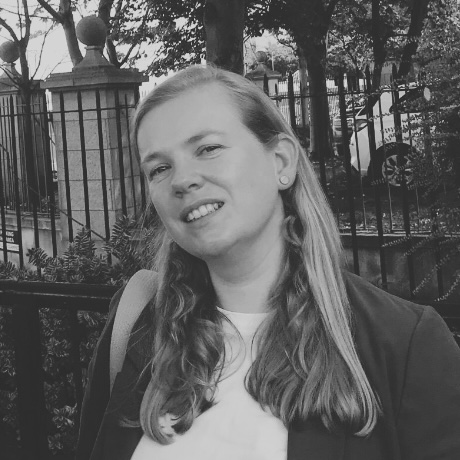- Format of posters is A0 in portrait orientation (84.1 cm width x 118.9 cm height, or 33.1 inches x 46.8 inches).
- You need to print the poster on your own.
- As you can see from the program, each conference poster is exhibited for one full day on October 7 (the first day of the conference) and each challenge poster is exhibited October 8 (the second day of the conference). You are welcome to set up your poster at any time between 8:30 (when the venue opens) and the end of the first coffee break (at 10:45). The official time allocated for attendees to browse posters is from 12:45 to 14:00 on Oct 7 and 12:15-13:30 on Oct 8, and we encourage you to stand by your poster during that time, after grabbing your lunch. You should remove your poster by the end of the day.
- Each talk will be allocated 12 minutes plus 3 minutes for Q&A. We will have to enforce a strict compliance with timing due to a fairly packed program, so please make sure that you stay in the allotted 12 minutes with your presentation.
- Prepare a PDF file with your slides and we will share a link for you to upload your presentation.
- Note that NetMob 2024 will be a fully in-person event, and we do not have options for remote presentation.

08:00 - 09:00
Registration and Breakfast
09:00 - 09:30
Welcome
09:30 - 10:30
Session A: Modelling Human Mobility
10:30 - 10:45
Coffee Break
10:45 - 11:45
Session B: Urban Segregation and Mobility Barriers
12:45 - 14:00
Lunch and Conference Poster Session
14:00 - 14:45
Keynote: Neave O’Clery: Can we do policy impact evaluation using mobile phone data in low data settings?
14:45 - 15:00
Coffee Break
15:00 - 16:00
Session D: Health and Epidemiology
Session A: Modelling Human Mobility
YJMob100K: City-scale and longitudinal dataset of anonymized human mobility trajectories
Takahiro Yabe, Kota Tsubouchi, Toru Shimizu, Yoshihide Sekimoto, Kaoru Sezaki, Esteban Moro, Alex Pentland
Decomposing geographical and universal aspects of human mobility
Louis Boucherie
One rule does not fit all: deviation from universality in human mobility modelling
Ludovico Napoli, Marton Karsai, Esteban Moro
Comparing Fairness of Generative Mobility Models
Afra Mashhadi, Daniel Wang, Ekin Ugurel
Session B: Urban Segregation and Mobility Barriers
Generation gaps in activity space segregations: A case study of Tokyo metropolitan areas using human mobility GPS data
Chenchen Sun, Yuya Shibuya, Yoshihide Sekimoto
Tracing Activity Space Segregation in US Metro Areas Using GPS Data
Yongjun Zhang
Unsupervised embedding of mobility reveals invisible barriers in US cities
Minsuk Kim, Guangyuan Weng, Esteban Moro, Yong-Yeol Ahn
Urban Segregation and Daily Human Mobility Patterns in Berlin
Ashish Thampi, Marlli Zambrano Zambrano, Alejandra Rincon, Andrzej Jarynowski, Vitaly Belik, Steven Schulz
Session C: Mobility in the Context of Socio-Economic Vulnerability
What makes for a successful ‘MPD for Policy’ initiative? Lessons learnt and best practice
Thomas Smallwood, Daniel Power, Sarah Allen, Francky Salomon, Trevor Monroe, Sveta Milusheva, Esperanza Magpantay,Cathy Riley, Sophie Delaporte
Unconstrained mobility patterns reveal significant gender differencess
Silvia De Sojo, Sune Lehmann, Laura Alessandretti
Bias in Smartphone Mobility Estimates in Low Smartphone Penetration Settings
Sveta Milusheva, Daniel Bjorkegren, Leonardo Viotti
Mobility and Vulnerability: The Role of Informal Employment
Ollin Langle Chimal, Marta Gonzalez, Marco Rosas, Christopher Chavez
Session D: Health and Epidemiology
Analysis of performance improvements and bias associated with human mobility data use in COVID-19 case prediction models
Saad Mohammad Abrar, Naman Awasthi, Daniel Smolyak, Vanessa Frias-Martinez
Iterating short periods of non-pharmaceutical interventions mitigates loss of adherence to restrictions
Albano Rikani, Laura Di Domenico, Chiara E. Sabbatini, Victor Navarro, Leo Ferres, Jocelyn Raude, Vittoria Colizza
Large-scale population mobility data provides meaningful indicators of fast food intake and predicts diet-related diseases across diverse populations
Abigail Horn, Kayla de la Haye, Esteban Moro, Bernardo Garcia Bulle-Bueno, Mohsen Bahrami, Sandy Pentland, Burcin Bozkaya, Yan Cui, John Wilson
Session E: Covid 19, human mobility and the distribution of economic activity
An assessment of small business impact disparities with respect to ethnorace in metropolitan areas in the US using mobility data
Saad Mohammad Abrar, Kazi Tasnim Zinat, Naman Awasthi, Vanessa Frias-Martinez
Job loss disrupts individuals’ mobility and their exploratory patterns
Simone Centellegher, Marco De Nadai, Marco Tonin, Bruno Lepri, Lorenzo Lucchini
From Pre to Post-Pandemic: Measuring Shifts in Urban Activity Across 100 US Cities Using Location-Based Services Data
Michael Leong, Jinhua Zhao, Yixuan Liu, Joy Wang
Mobility patterns reveal a “doughnut effect" for activity in large American cities
Andrew Renninger